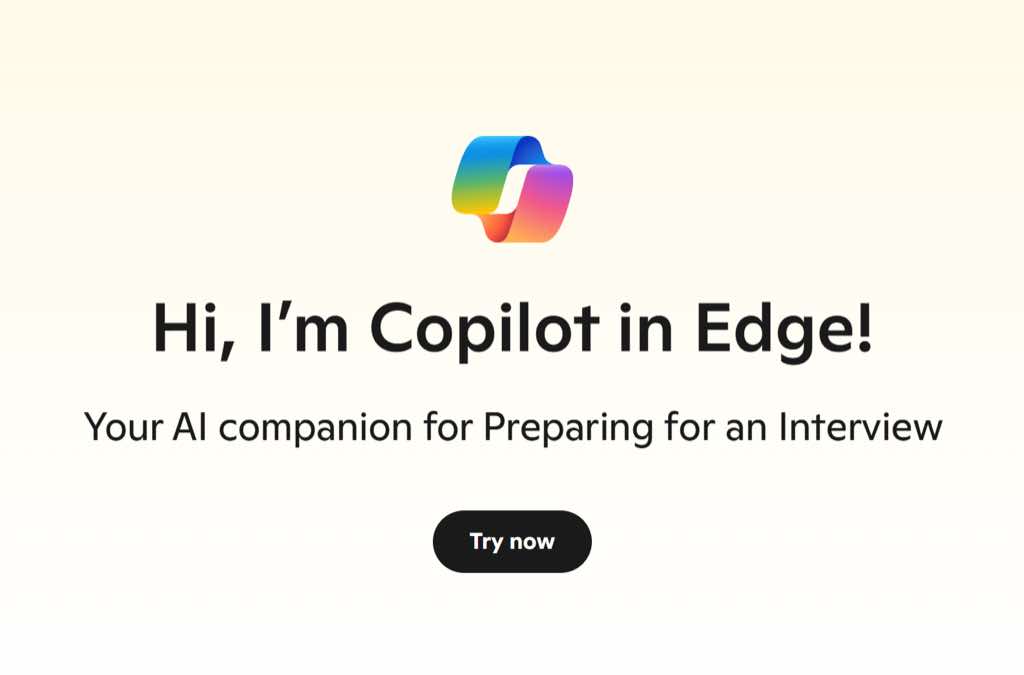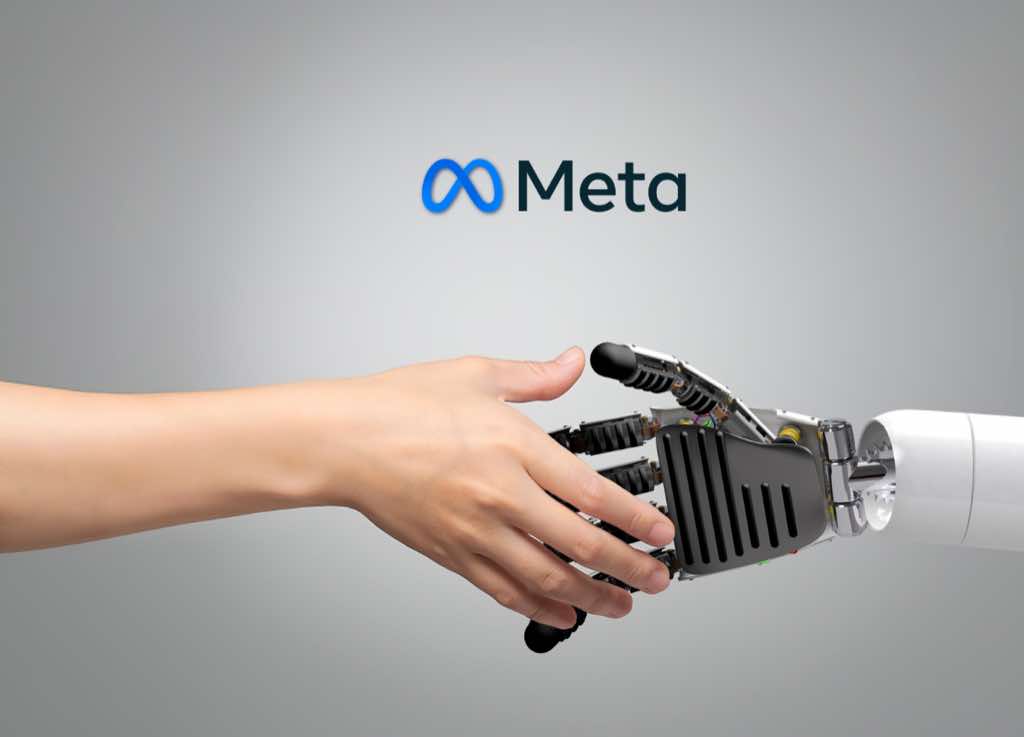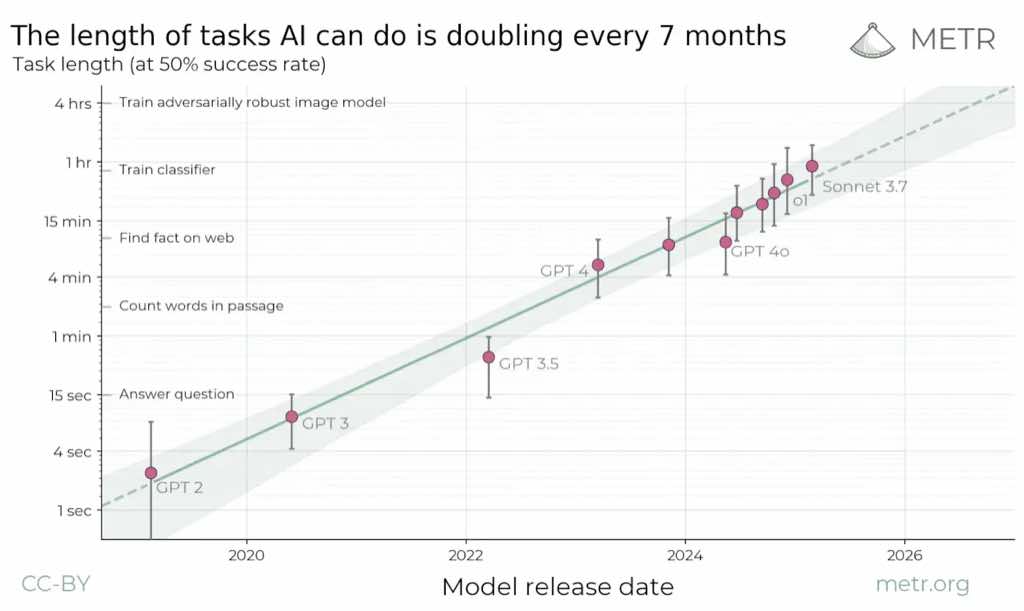Search Disrupted Newsletter (Issue 26)
Perplexity launches email assistant, HBR warns about AI 'workslop', Microsoft's vision for browser AI, Meta's regulatory pushback, and why we keep underestimating exponential AI growth.
Perplexity doesn’t care about your email
Perplexity just launched an AI assistant for your inbox, and it’s…fine?
The pitch: AI reads your emails, surfaces what’s important, drafts responses, and even finds that one message from three months ago you can’t remember. It’s basically giving everyone an executive assistant for free (as part of their subscription).
But I don’t think it’s really about “email”, I think it’s about context. Nobody (including me) knows exactly what the future of search is going to look like, but it’s become very clear that we’re going to have agents doing searches for us.
The move on Perplexity’s part gets them the context they need to do better searches on your behalf, understand what’s important to you, find your favorite brands, etc.
Which, for search marketers, matters.
Link: Perplexity Email Assistant
Harvard Business Review says AI “workslop” is destroying productivity
HBR just published something I’ve been thinking about for months but couldn’t quite articulate: AI-generated “workslop” is clogging up organizations and actually making people less productive.
The term “workslop” is perfect. It’s the AI-generated emails that take three paragraphs to say what could be said in one sentence.
I see this constantly in the search marketing world. Someone asks ChatGPT to “write an SEO report” and gets back 2,000 words of generic advice that could apply to any website.
It looks like work It wastes time It adds nothing of value
Partially, this is why we’re big proponents of creating “face” vs. “faceless” content, where we want people to literally be able to visualize my face when they read this newsletter or hear me on a podcast.
We’re doing that because it’s part of a brand strategy that works well for AI search, but also because it’s a forcing function to write good stuff as it has my actual name on it.
Link: AI-Generated Workslop Is Destroying Productivity
Microsoft’s AI chief thinks browsers are about to get weird
Microsoft’s AI CEO, Mustafa Suleyman, just gave an interview to The Verge where he basically said browsers as we know them are going to disappear into something much more… agentic.
His vision: instead of browsing, you’ll have AI agents that browse for you. You tell your browser, “I need to plan a trip to Japan in March,” and it doesn’t give you a list of links. It researches, compares, books, and reports back.
Suleyman specifically called out the current browser experience as “broken” - too many tabs, too much context switching, too much manual work that AI could handle.
I’m fascinated by this because it’s such a fundamental shift in how we think about the internet. We went from portals (Yahoo organizing the web) to search (Google indexing it) to AI agents (systems that navigate it for you).
For search marketers, this is terrifying and exciting simultaneously. Terrifying because if AI agents are doing the browsing, traditional SEO might become irrelevant. Exciting because whoever figures out how to get AI agents to recommend their brand wins everything.
The real question: Will Microsoft actually build this, or is this just visionary talk that never ships?
Link: Microsoft AI CEO on Future of Browsers
Meta is going all-in against AI regulation
Meta just announced they’re launching a national super PAC specifically to fight AI regulation, and I have opinions about this.
On one hand, I get it. Overregulation can absolutely stifle innovation, and some of the proposed AI regulations are written by people who fundamentally don’t understand the technology.
On the other hand, Meta launching a political action committee to fight regulation feels like exactly the kind of move that makes people want more regulation.
What’s particularly interesting is the timing. Meta’s also making Llama available to more governments in Europe and Asia, positioning itself as the “open” AI company while simultaneously fighting regulation domestically.
The strategy seems to be: be so useful to governments internationally that they’ll think twice about regulating you domestically.
For search marketers, the regulatory landscape matters enormously. If AI gets regulated like social media (content moderation requirements, algorithmic transparency, data restrictions), it could fundamentally change how AI search systems work and what content they surface.
My intuition is that Meta’s fighting a losing battle here. The question isn’t whether AI gets regulated, but how. And by fighting all regulations instead of shaping good regulations, they might end up with worse outcomes.
Link: Meta Launches AI Regulation Super PAC
Ollama brings web search to local AI models
Ollama just added web search capabilities to locally-running AI models, and this is quietly huge.
For those unfamiliar, Ollama lets you run large language models on your own computer instead of sending queries to ChatGPT or Claude. Up until now, these local models were limited to their training data - they couldn’t access current information.
Now they can search the web.
This matters because it means you can have a ChatGPT-like experience with web search that never leaves your computer. No data sent to OpenAI. No conversation logs are stored in the cloud. Complete privacy.
I keep saying that local AI is the future, and updates like this are why. We’re rapidly approaching a world where the most powerful AI doesn’t require an internet connection or a subscription to a cloud service.
For search marketers, this has massive implications. If a significant portion of AI search happens locally, you lose visibility into what people are searching for. No analytics. No tracking. Just users and AI, privately researching your competitors.
The brands that win will be the ones that are so well-represented on the open web that even local AI models trained on public data recommend them.
Link: Ollama Web Search
We’re still failing to understand exponential growth
Julian Schrittwieser wrote a piece that perfectly captures something I’ve been wrestling with: people (including me) keep underestimating exponential AI progress.
His key point: our brains are wired for linear thinking. When something improves 10% year over year, we can mentally project that forward. But when something improves 10x every 18 months, our intuition completely breaks down.
He uses concrete examples: - GPT-3 to GPT-4 wasn’t just “better” - it was a fundamental capability shift - Image generation went from “this clearly isn’t real” to “I can’t tell” in about 18 months - Voice synthesis crossed the uncanny valley so fast that most people missed it happening
For search marketers, this has profound implications. The AI search experience in 2027 won’t be “today but better.” It will likely be fundamentally different in ways we will struggle to keep up with.
The article’s conclusion is both inspiring and unsettling: if you’re making strategic plans based on linear projections of AI capabilities, you’re probably wrong. The only certainty is that things will change faster than you think.
My takeaway: Instead of trying to predict exactly where AI search is going, build strategies that are resilient to radical change. Focus on fundamentals that matter regardless of the interface: being useful, being trustworthy, being memorable.
Link: Failing to Understand the Exponential
Meta’s next move: mining your AI chats for ad targeting
Meta announced they will soon use your AI chatbot conversations for ad targeting, and honestly, this was always inevitable.
The pitch: By understanding what you’re asking their AI, they can show you more relevant ads. The reality: every question you ask Meta AI becomes data for their advertising engine.
What’s particularly clever (or insidious, depending on your perspective) is how this changes the value equation. Meta AI isn’t just a product they offer - it’s a data collection mechanism that people willingly use because it’s helpful.
Ask Meta AI “what’s a good birthday gift for a 10-year-old who likes science?” and you’ve just told their ad system exactly what you’re shopping for, in natural language, with full context.
This type of intent data is something Meta currently lacks, and it’s clear they are desperate to pull more of it into their systems.
The implications are massive. Traditional keyword-based targeting looks primitive compared to “this person just spent 10 minutes asking our AI about switching to electric vehicles.”
The question is whether users will accept this trade-off. My guess? Most won’t care until they get an ad that’s so eerily specific they realize exactly how much their AI conversations reveal.
Link: Meta Using AI Chats for Ad Targeting

p.s. It would really help me out if you could Follow me on LinkedIn







